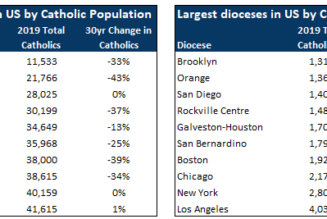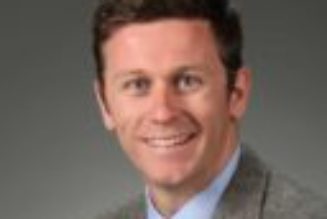As monkeypox—a disease that the CDC refuses to identify as a sexually transmitted disease, even though it is spread almost exclusively by men who have sex with men—continues to rage through the gay community, the complaints about “government inaction” have already begun. Claiming that the government has not done enough to keep the gay community “safe” from the disease that causes painful genital lesions—and is primarily spread through those lesions—New York Magazine has led the charge claiming that neither the City of New York nor the federal government has done enough. Demanding “more testing” and “more vaccines,” the gay community is calling on the federal government to do more to keep men who have sex with men “safe.”
It seems that keeping gay men safe may be more difficult than anyone anticipated. And it seems that even very young children may not be safe from contracting monkeypox from men who have sex with men. Recently, Rochelle Walensky, the Director of the CDC, reported that two young children have contracted monkeypox in the United States. Walensky added that both cases were traced to “household contact” with individuals in the “men-who-have-sex-with-men community.”
Gay activist James Krellenstein decried the “inaction” by the government to “protect the gay community during this outbreak,” claiming that the government’s lack of urgency is a “recipe for disaster that will lead to a mass transmission event.”
Interviewed while standing in line outside a government-supported sexual health clinic in Chelsea—where hundreds of gay men were waiting to be vaccinated against monkeypox—on the eve of the first Pride parade to have a full slate of programming since the Covid pandemic began, Krellenstein told a New York Magazine reporter that he was concerned that some of his friends might not be able to enjoy themselves during the last week of the Pride celebrations if they are worried about monkeypox.
Others agreed. “‘This is all because of Pride’ said Evan Ipock, gesturing at the people in line who, like him, were waiting for hours in the hopes of snagging a walk-in appointment. ‘People want to be able to feel safe having fun this weekend.’”
Most agree that much of the anxiety in the gay community has emerged from the lack of information about the disease, the symptoms, and how it is spread. But the fact that nearly all of the documented cases have emerged in the population of men who have sex with men seems to suggest that the disease has a behavioral component to it. Those who gathered at the Chelsea Sexual Health Clinic know that already—they just don’t want to acknowledge that they can easily avoid this disease by changing their behavior.
The World Health Organization has acknowledged the behavioral component and issued warnings to men who have sex with men. New York Magazine has suggested that the “trans community” is also at risk.
The connections to the gay community cannot be denied. But the CDC—once again—appeared to channel the AIDS mantra of the 1980s when Dr. John Brooks, a medical epidemiologist at the CDC’s division for AIDS prevention, suggested that we are all at risk—claiming that “anyone can catch the virus regardless of sexual orientation.” And although Brooks acknowledged that the CDC had planned to increase its public health messaging ahead of LGBTQ Pride Month, most in the gay community claim that it was too little, too late.
The CDC—and Dr. Anthony Fauci—have a long history of doing exactly this. As Randy Shilts’ 1987 book And the Band Play On: Politics, People, and the AIDS Epidemic points out, Fauci was a hero in his early days as an AIDS clinician at the National Institutes of Health Hospital. But, Shilts also devotes several pages of his book to what he saw as a recurring problem with Fauci: that the hero in the AIDS fight was also a political player who was willing to distort research data to try and shape policy in the ways he thought it needed to be shaped.
On May 5, 1983—contrary to all of the research data at the time—Dr. Fauci published an article in the Journal of the American Medical Association stating that AIDS was transmissible by “routine close contact.” Claiming that children could catch the deadly disease of AIDS from their families, Fauci wrote that if routine personal contact among family members in a household is enough to spread the illness, “then AIDS takes on an entirely new dimension.”
Fauci’s 1983 editorial opened the floodgates of fear of AIDS. According to Michael Fumento’s book The Myth of Heterosexual AIDS, “Fauci’s article moved AIDS from being ‘perceived as a gay disease to a ‘media event.’ Fumento’s review of media coverage via the computerized bibliographic news service Nexis revealed that during the second and third quarters of 1983, AIDS news coverage quadrupled to about 700 articles each quarter.
“And although reassurances were given to contradict Fauci’s felonious statements on the ‘casual contact’ contention, the idea that ‘anyone’ was vulnerable to contracting AIDS continued for quite a while.” As Fumento wrote, “what really appeals to editors is raising the specter that AIDS is about to break out of major risk groups…If previously healthy straights were getting a fatal disease for which there was no cure and the number of cases was doubling every seven or eight months or so, the story would be in the papers every day.”
According to Shilts, Fauci refused to take any responsibility for the panicked response. Instead, he blamed a “hysterical media for taking his comments ‘out of context.’”
After all, he had said only that the possibility of household transmission might raise all these scientific implications. The lay public did not understand the language of science, he pleaded. Science always dealt with hypotheticals; this did not mean he was saying that AIDS actually was spread through household contact. Moreover, the chief villain, he would accurately note, was the press office of the American Medical Association which had so shamefully sensationalized the journal article in an effort to draw attention to a journal that always found itself playing second fiddle to Science and the New England Journal of Medicine.
“No matter who was to blame, Fauci’s warnings about casual contact causing AIDS set in motion a wave of hysteria; it also set in motion a wave of government and private funding for research for a cure. The New York Times and USA Today ran Fauci’s flawed press release, as did most newspapers in the United States. Heterosexuals began to believe that they, too, were vulnerable. The media warned that heterosexuals ‘just like you and me,’ with no risk factors other than heterosexual intercourse, could spread AIDS. Claiming that, in 1986, the proportion of heterosexual transmission cases had doubled in one year from 2 percent to 4 percent of all cases, Fumento pointed out that the media neglected to ask the “hard questions” about the real data.
“Blaming the CDC for distorting the numbers of heterosexual cases, Fumento wrote: ‘nobody was seeing these additional cases, to be sure but they existed on paper, with the trail of paper leading right back to the doors of the Centers for Disease Control in Atlanta.’
“What the media did not tell us about these percentages was that the CDC had included AIDS cases discovered among new arrivals to the United States from Africa and Haiti who were classified as ‘undetermined’ sexual orientation when they were diagnosed. The CDC later acknowledged that ‘it was probably an omission’ to fail to state that the undetermined were lumped in with the heterosexuals in compiling the data on new AIDS cases: ‘It should have been put in there, but if somebody called, we’d set them straight.’”
The CDC knows that monkeypox is primarily a disease that is currently contained within the households of the gay men’s community. The fact that the first doses of the monkeypox vaccine were only made available to men who have sex with men, “cis” and trans, and to those who have had multiple or anonymous partners in the previous two weeks tells everyone all they need to know. It is time that the CDC acknowledged that for the rest of us.
[Photo Credit: Getty Images]
Join Our Telegram Group : Salvation & Prosperity









